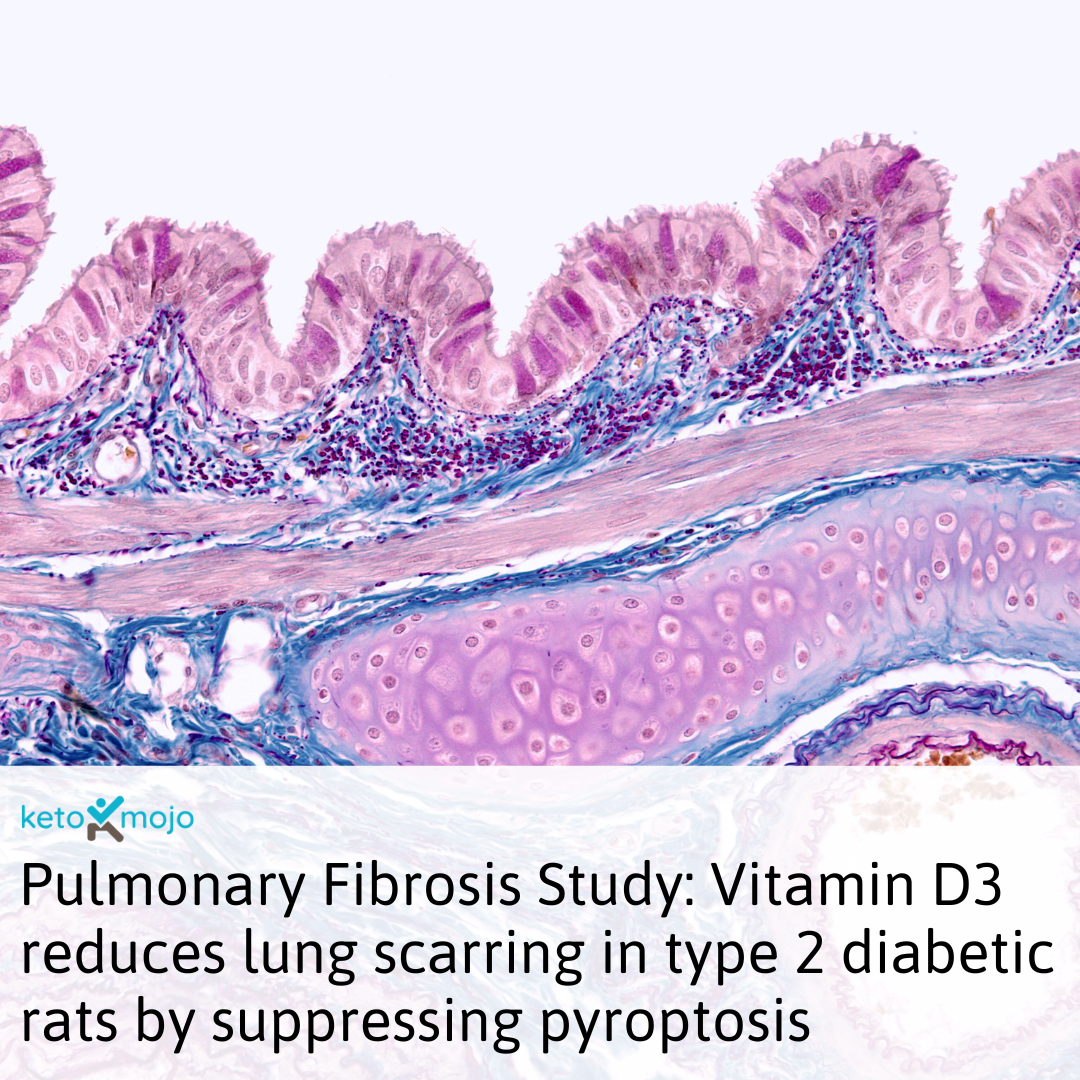Cardiovascular Disease, Diabetes
Vitamin D3 alleviates lung fibrosis of type 2 diabetic rats via SIRT3 mediated suppression of pyroptosis

A research study explored the impact of vitamin D3 on pulmonary fibrosis development in type 2 diabetic rats, focusing on its potential to counteract pyroptosis—a form of cell death linked to inflammation and triggered by infections or other harmful stimuli.
In the study, Sprague-Dawley rats were categorized into groups: a normal control, a diabetic model control, and others receiving various doses of vitamin D3. After inducing type 2 diabetes, the study evaluated the effects of vitamin D3 and metformin over 10 weeks.
Findings indicated that diabetic rats exhibited significant challenges with blood glucose levels, insulin resistance, body weight, and other metabolic parameters, in addition to experiencing severe lung fibrosis. Vitamin D3 treatment notably mitigated these issues by modifying the expression of proteins associated with pyroptosis and enhancing the levels of SIRT3, a protein protective against cell damage, in the diabetic rats’ lungs.
Essentially, vitamin D3 reversed the elevated levels of pyroptosis-related proteins in the diabetic rats’ lungs and increased SIRT3 expression, which had been reduced due to diabetes.
The study concludes that vitamin D3 could effectively alleviate diabetic pulmonary fibrosis by promoting SIRT3 activity, which suppresses pyroptosis.



